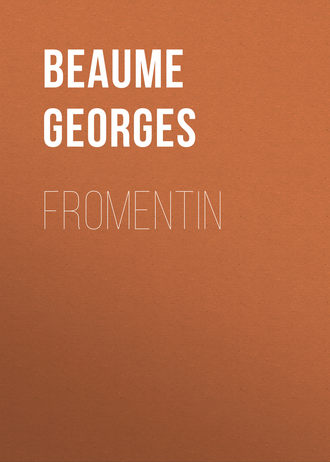 полная версия
полная версияFromentin
At first, and for some time afterward, the public seemed to ratify this opinion. The volume, issued by Hachette, was bought only at rare intervals and out of curiosity. Later, after this initial failure, it took a fresh start, and to-day is a recognized classic. For, while it is true that this prose poem is lacking in intrigue and that its characters are somewhat overwhelmed by the floods of light from its stage-settings, it diffuses such a redolence of the soil teeming with life, such a fragrance of warm and pure tenderness, that every sensitive and ardent soul delights to yield itself to the harmonious flow of its words and colours.
The Masters of Yesterday has become a breviary for painters who are studying the Flemish and Dutch schools. “The Fromentin revealed in The Masters of Yesterday” asserts Emile Montégut, “is a second Taine, minus the defects for which the latter is reproached, and minus that sort of harshness which comes from the exclusive use of crude colours and a disdain of half-tones. There is also this further difference between them: that Taine puts his battalions of ideas and facts through their manoeuvres with the imperiousness of a general-in-chief commanding an action, while Fromentin assembles and reviews his own with the ease of an orchestra leader directing the instruments under his orders by the simple gesture of his bow… Just one word is applicable, in point of strict definition, to the temperament and talent of Fromentin: that word is perfection. He strove for it all his life. He deserves to be called the classic of that type of picturesque literature, whose ambition, at the outset, looked toward a very different goal from that of gaining this title, and whose enterprises and audacities the classic school of art could not, as a matter of fact, have beheld without alarm.” This book is, without doubt, Fromentin’s best. For, while the majority of art critics are merely amateurs posing as craftsmen and judges, he knew quite well whereof he spoke. While he understood as well as the others, and even better, an author’s purpose, he could also see of what material and by what means the work of this same artist was composed. He was not a dilettante, endowed with a greater or less amount of taste, but a fellow craftsman, who knew how to mix his own colours and to analyze the palette of another.
His literary works entitled him to a seat in the Académie Française considerably sooner than he could have dreamed of the Académie des Beaux-Arts.
As a matter of fact, in 1874, he offered himself, at the urgent entreaty of his friends, as a candidate for the Académie Française, quite suddenly and when it was already too late to bring any influence to bear, while solemn pledges had already been secured by his competitors. In spite of this, the weight of his name secured him thirteen or fourteen votes.
He was preparing a volume of critical studies on the French school and planning another on the Italian school, when death abruptly cut him short, at the age of fifty-five, in the midst of a steady ascension into the light of fame. It was a misfortune for France. In the beauty of his character, as lofty as that of his genius, he offered an example of the most precious qualities of man and artist: uprightness, charity, good taste in what he admired, and sincerity in what he tried to do. The name of Eugène Fromentin grows greater day by day; clouds may pass before him, as before a star, but without ever effacing him.
1
Eugène Fromentin, Lettres de Jeunesse.

